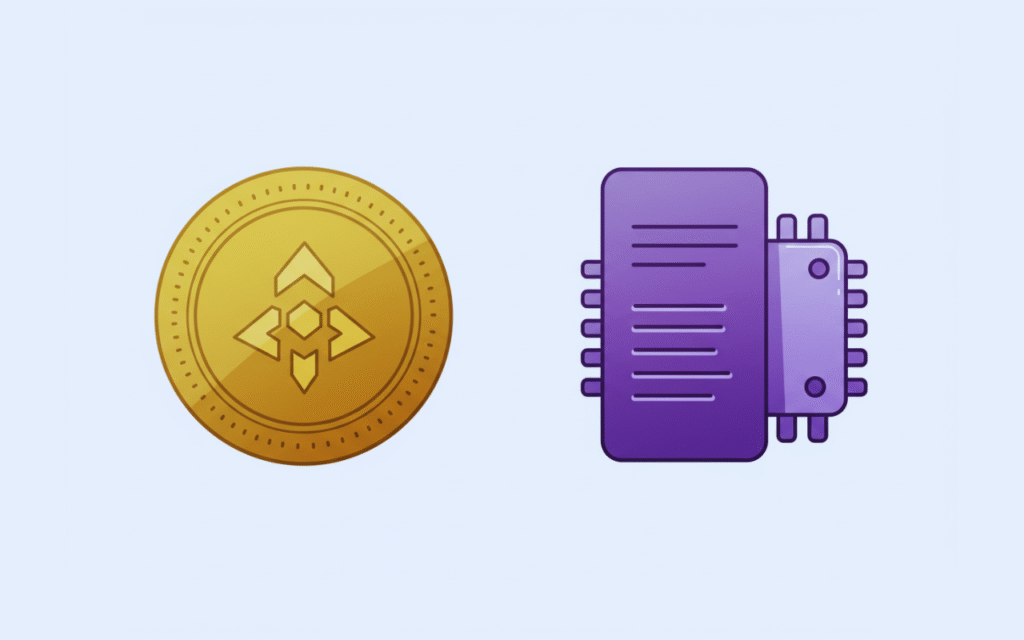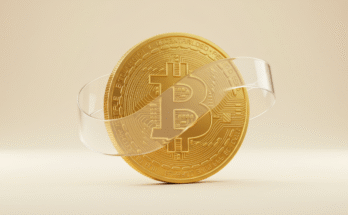If you’re new to the world of cryptocurrency, you’ve probably come across the terms “coins” and “tokens“. While they may seem interchangeable at first glance, they actually refer to two distinct concepts within the crypto space. Understanding the difference between the two is key to navigating this rapidly evolving industry. Don’t worry, this post will break it down for you in a simple and friendly way.

What Are Coins?
Let’s start with coins. In the cryptocurrency world, coins are digital currencies that operate on their own blockchain. Think of a blockchain as a digital ledger that keeps track of all transactions made with a particular cryptocurrency. Coins are typically designed to function as a medium of exchange, a store of value, or even a unit of account.
The most well-known example of a coin is Bitcoin (BTC). Bitcoin was created to be a decentralized digital currency that operates without the need for a central authority, like a bank. Other popular coins include Ethereum (ETH), Litecoin (LTC), and Ripple (XRP).
Coins are often used for financial transactions, such as buying goods and services or transferring value between individuals. Since they have their own blockchains, coins are essentially the backbone of their respective networks.
What Are Tokens?
Tokens, on the other hand, are a bit different. Unlike coins, tokens don’t have their own blockchain. Instead, they are built on top of an existing blockchain. The most common blockchain for creating tokens is Ethereum, thanks to its smart contract capabilities.
Tokens can serve a variety of purposes beyond just being a form of currency. They can represent ownership in a project, grant access to specific services, or even act as a reward system within an ecosystem. For example:
- Utility Tokens: These give holders access to a product or service. A good example is Basic Attention Token (BAT), which is used within the Brave browser ecosystem.
- Security Tokens: These represent ownership in an asset, like shares in a company, and are subject to regulatory oversight.
- Governance Tokens: These allow holders to vote on decisions within a decentralized organization or protocol. For instance, Uniswap (UNI) holders can vote on changes to the Uniswap platform.
- Non-Fungible Tokens (NFTs): These represent unique assets like digital art, collectibles, or even virtual real estate.
Since tokens rely on existing blockchains, their creation is generally faster and less resource-intensive than creating a coin with its own blockchain.
Key Differences Between Coins and Tokens
→ To make things clearer, here’s a quick comparison:
| Feature | Coins | Tokens |
|---|---|---|
| Blockchain | Operates on its own blockchain | Built on an existing blockchain |
| Purpose | Primarily used as currency | Can represent assets, services, or rights |
| Examples | Bitcoin (BTC), Ethereum (ETH) | Basic Attention Token (BAT), Uniswap (UNI) |
| Creation Process | Requires building a blockchain | Uses smart contracts on an existing blockchain |
Why Does This Matter?
Understanding the difference between coins and tokens helps you make informed decisions when exploring cryptocurrencies. For instance:
- If you’re looking for a digital currency to transfer value or make payments, coins like Bitcoin or Litecoin might be what you need.
- If you’re interested in participating in decentralized apps (dApps) or investing in projects with specific use cases, tokens could be your focus.
Additionally, knowing whether something is a coin or token can help you evaluate its utility and potential value within the crypto ecosystem. It’s also important when managing your crypto wallet, some wallets may only support certain coins or tokens based on their underlying technology.
Conclusion
Coins and tokens are both essential parts of the cryptocurrency world, but they serve different purposes. Coins operate on their own blockchains and are primarily used as digital money, while tokens are built on existing blockchains and can represent anything from utility to ownership.
The beauty of crypto is its diversity, there’s something for everyone! Whether you’re sending Bitcoin to a friend or holding an NFT in your wallet, understanding these basic concepts will empower you to explore this exciting space with confidence.


